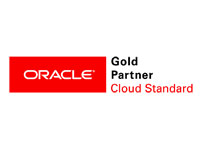What is an Enterprise Resource Planning System?
ERP Systems
What is an ERP System?
An Enterprise Resource Planning system is used by companies to manage their day-to-day business activities including accounting, procurement, project management, risk management and compliance, and supply chain operations. An ERP system helps tie together multiple business processes and enables the flow of data between them. By collecting a business' shared transactional data from multiple sources, ERP systems eliminate duplicate data and provide integrity with a single source of truth.
ERP systems allow businesses to quickly access needed information for clients, vendors, and business partners, contributing to improved customer and employee satisfaction, quicker response rates, and increased accuracy rates. Associated costs often decrease as the company operates more efficiently.
Integrated Processes to Run a Business
ERP solutions are designed around a single, defined data structure that has a common database. This helps ensure that the information used across the organization is normalized and based on common definitions and user experiences. These core structures are interconnected with business processes that are driven by workflows across business departments (e.g. finance, human resources, sales, marketing, operations.) This becomes the vehicle for integrating people, processes, and technologies across a modern enterprise.
ERP solutions are critical for managing businesses of all sizes and industries. The complete ERP suite also includes Enterprise Performance Management (EPM), a software solution such as OneStream XF , which helps plan, budget, forecast, close, consolidate, and report on the company's financial results. Some of the benefits of ERP include the free flow of communication between business areas, a single source of information, and accurate, real-time data reporting.
The components of an ERP system are dependent on the needs of the organization. However, there are key features that each ERP should include. An ERP system should be automated-to reduces errors-and flexible, allowing for modifications as the company changes or grows. More people are mobile; therefore, the ERP platform should allow users to access it from their mobile devices. Lastly, an ERP system should provide a means for productivity to be analyzed and measured. Other tools can be integrated within the system to improve a company's capabilities.
ERP in the Cloud
One of the greatest benefits of utilizing a cloud ERP solution such as Oracle NetSuite is that the system is kept up-to-date with all the latest features, functionalities, and best practices. With a SaaS (software as a service) model, providers roll out updates regularly. The newest technologies-such as AI, digital assistants, machine learning, blockchain, augmented reality, and the Internet of Things (IoT)-become available to subscribers on a regular cadence. With access to these new technologies, companies can quickly improve their business best practices as the ERP system evolves.
ERP systems promote the free flow of communication and sharing of knowledge across an organization, the integration of systems for improved productivity and efficiencies, and increased synergies across teams and departments.
Contact MindStream Analytics
Fill out the form below to learn more about ERP solutions and MindStream Analytics.
Partner SpotLight

Oracle
Oracle has the most comprehensive suite of integrated, global business applications that enable organizations to make better decisions, reduce cost..